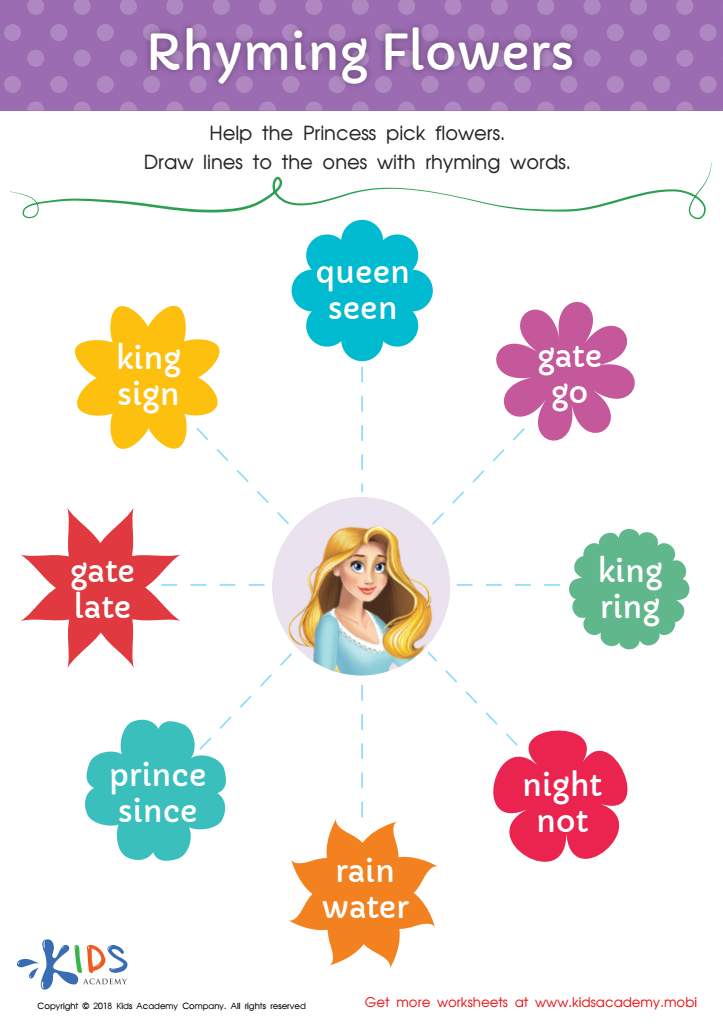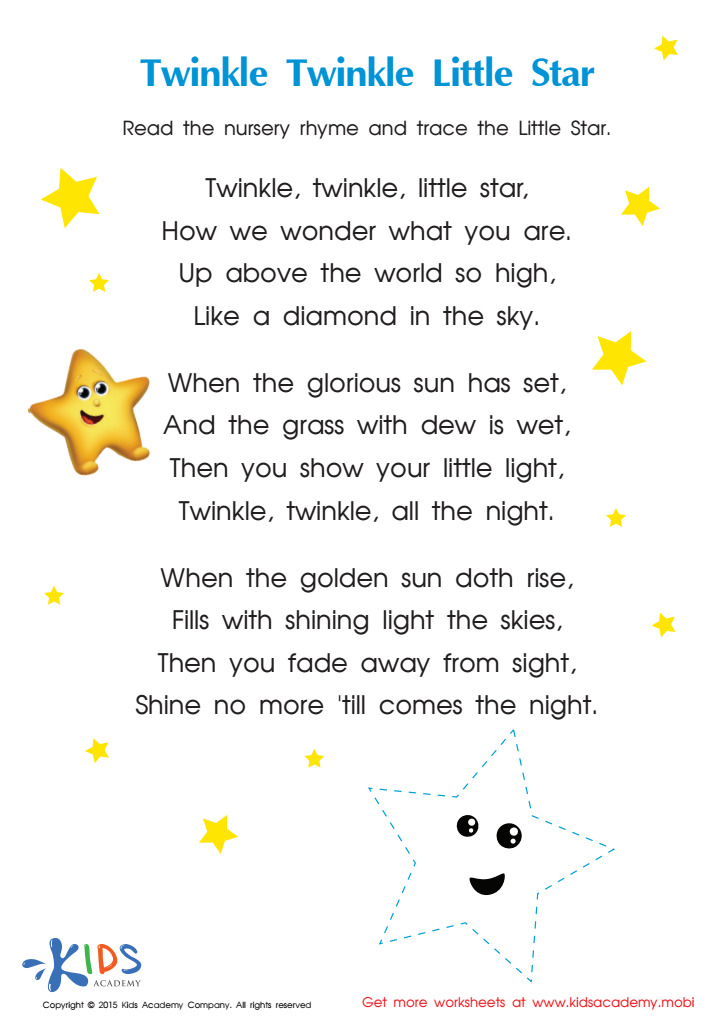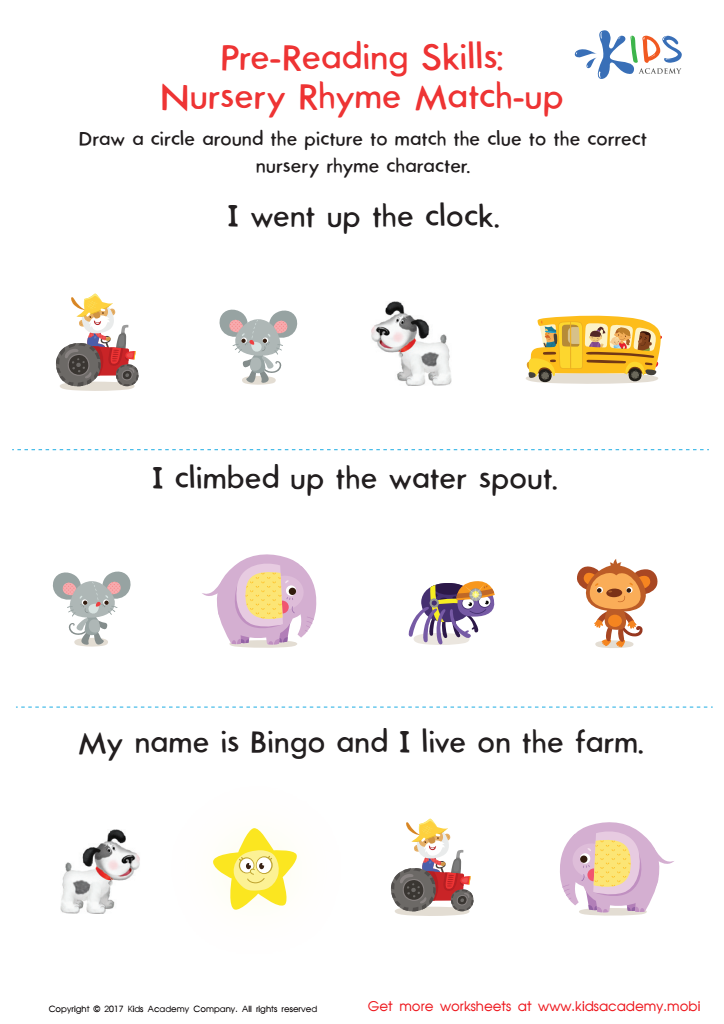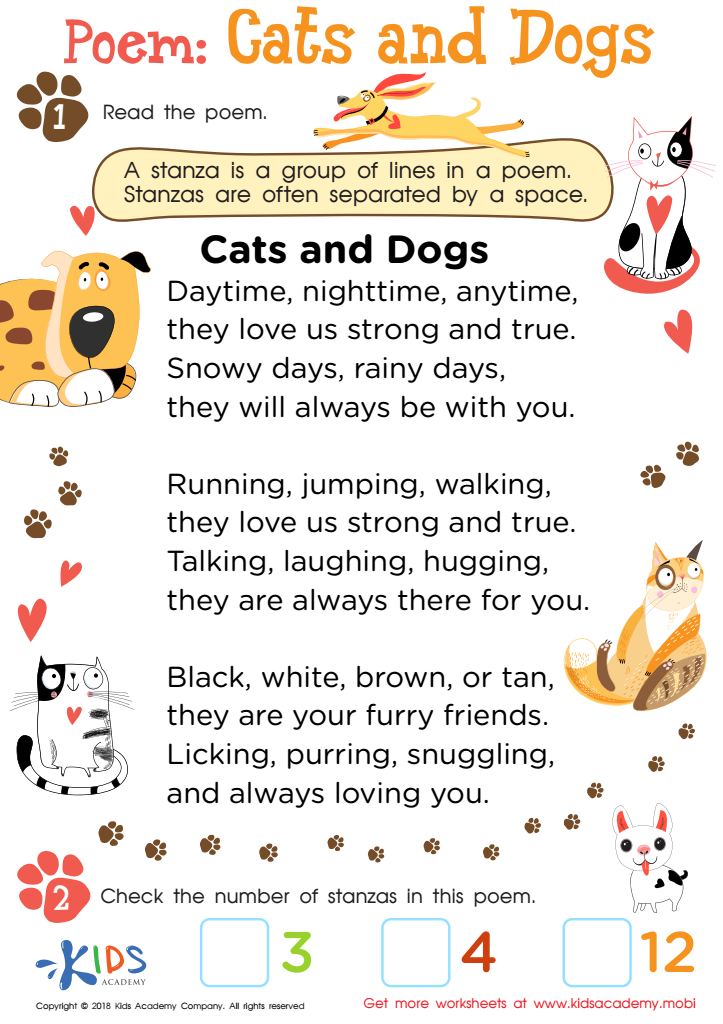Rhyme recognition Reading Worksheets for Ages 6-9
5 filtered results
-
From - To
Discover our engaging Rhyme Recognition Reading Worksheets tailored for children aged 6-9! These printable resources are designed to enhance phonemic awareness and boost literacy skills through fun and interactive activities. Each worksheet encourages young learners to identify, match, and create rhymes, fostering a strong foundation in reading. With colorful illustrations and age-appropriate challenges, kids will enjoy exploring the world of rhymes while sharpening their language abilities. Perfect for both classroom use and at-home practice, our worksheets make learning enjoyable and effective. Help your child develop a love for reading through the power of rhyme recognition!


Baa Baa Black Sheep Printable


Rhyming Flowers Worksheet


Nursery Rhymes: Twinkle Little Star Worksheet


Nursery Rhyme Match–Up Worksheet


Poem: Cats and Dogs Worksheet
Rhyme recognition is a crucial component of early literacy development for children aged 6-9. This skill forms the foundation for numerous reading and language abilities. Understanding and identifying rhymes not only enhances phonemic awareness, where children learn to recognize and manipulate the sounds in words, but it also aids in improving vocabulary and spelling. When children can detect rhymes, they develop a deeper understanding of the structure of language, enabling them to decode unfamiliar words and make connections between sounds and letters.
Moreover, rhyme recognition fosters a love for reading. Engaging with rhyming texts can make reading more enjoyable and accessible, capturing children's attention and stimulating interest in literature. This, in turn, encourages frequent reading practice, which is essential for developing fluency and comprehension skills.
Additionally, strong rhyme awareness is often linked to improved writing abilities. As children experiment with words and sounds, they become more creative and confident in their use of language. For both parents and teachers, prioritizing rhyme recognition activities—such as reading aloud, singing songs, or playing rhyming games—can significantly contribute to building a child's overall literacy skills and nurturing a lifelong love for reading.

 Assign to My Students
Assign to My Students






.jpg)














